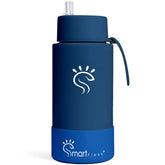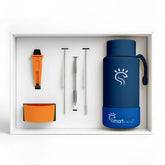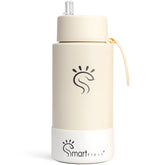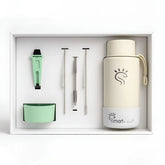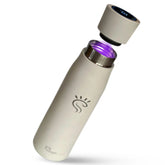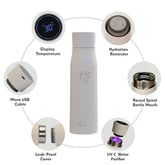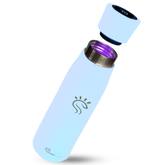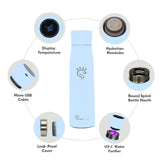From Bluetooth to Biodegradable: The Latest Innovations in Smart Water Bottles
To spare Earth from further environmental damage, people are innovating new technologies, such as eco-friendly bottles, to help preserve the planet. However, the capitalist market has long favoured the mass production of plastic water bottles, which are destructive to the environment. Despite their temporary benefits, the materials used have negatively impacted humankind, from ancient designs to modern smart water bottles.
Stainless Steel Bottles: The Rise of Smart Water Bottles

Stainless steel bottles have evolved into smart water bottles with software, Bluetooth connections, and rechargeable batteries. Although these advancements bring convenience, the world is shifting towards more sustainable materials, like biodegradable water bottles, to protect the environment better.
Biodegradable Water Bottles: A Step Toward Sustainability
Biodegradable water bottles resemble plastic but decompose naturally and quickly over time. Unlike traditional plastic bottles, they cannot be reused. On the other hand, self-cleaning and thermos drink bottles are reusable and allow frequent refills, providing long-lasting use for consumers.
Smart Purification Flasks: Turning Nature into Drinkable Water
Smart purification flasks claim to be eco-friendly because they purify natural water sources such as streams and lakes, making them safe for drinking. Biodegradable water bottles, made from materials with a specific pH level, also support environmental sustainability by naturally integrating back into the ecosystem.
Leakproof, BPA-Free Bottles: Prioritizing Health
Regardless of the material used, whether it’s stainless steel or biodegradable plastic, both types of water bottles are leakproof and free from harmful chemicals like BPA, which can negatively affect human health.
Design and Functionality: Eco vs. Smart Water Bottles
While eco-friendly water bottles are typically available in white, smart water bottles come in various colours, including black and pink. Smart water bottles offer multiple features, such as hydration alerts, music playback, temperature control, self-cleaning functions, app connectivity, and water intake tracking. In contrast, biodegradable water bottles focus solely on self-decomposition, ultimately vanishing from the planet over time.
The Future of Water Bottles: A Blend of Innovation and Sustainability
The future of water bottles looks promising, with potential for a hybrid model that combines biodegradable and smart technology. This could offer consumers diverse features while ensuring the bottle disappears from the environment when its job is done. Biodegradable bottles are available on a limited scale in Australia, but increased production is necessary to address the global issue of plastic, rubber, and stainless steel waste.

